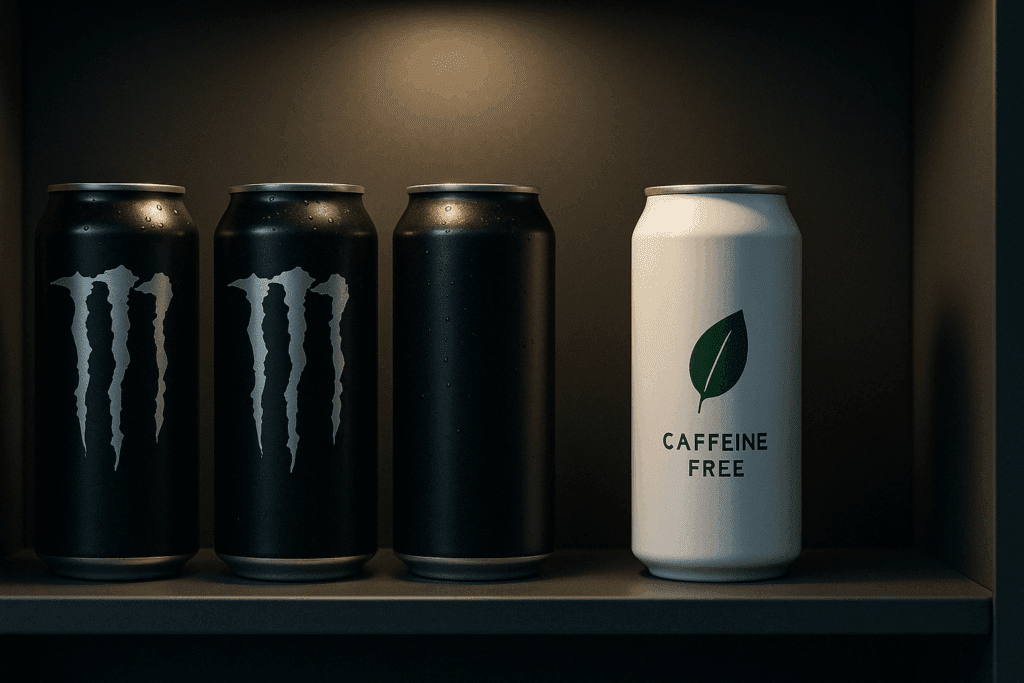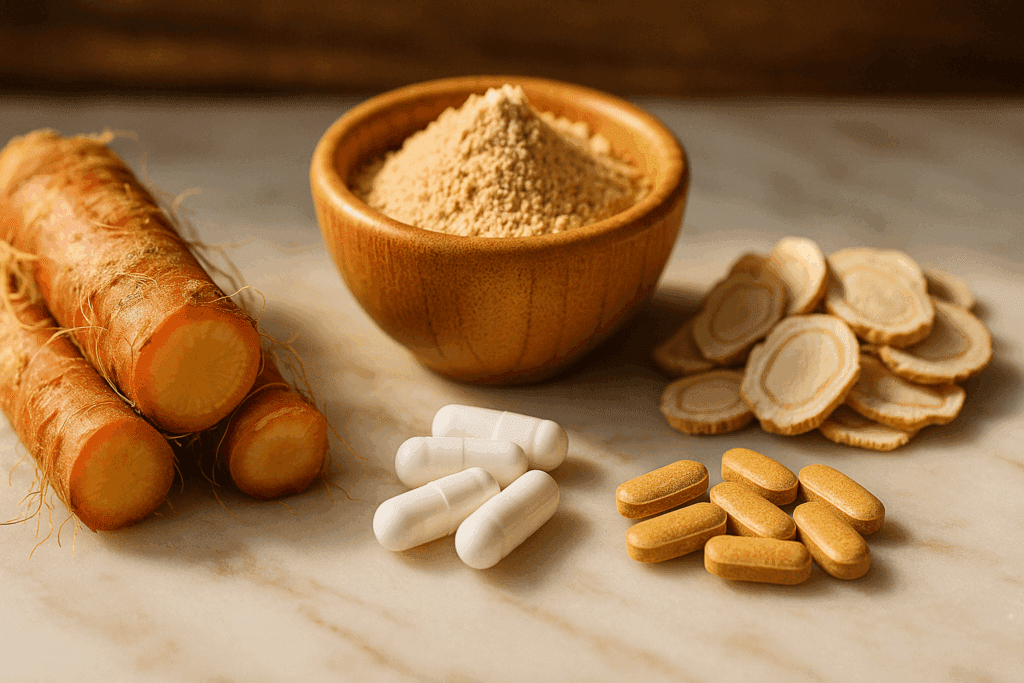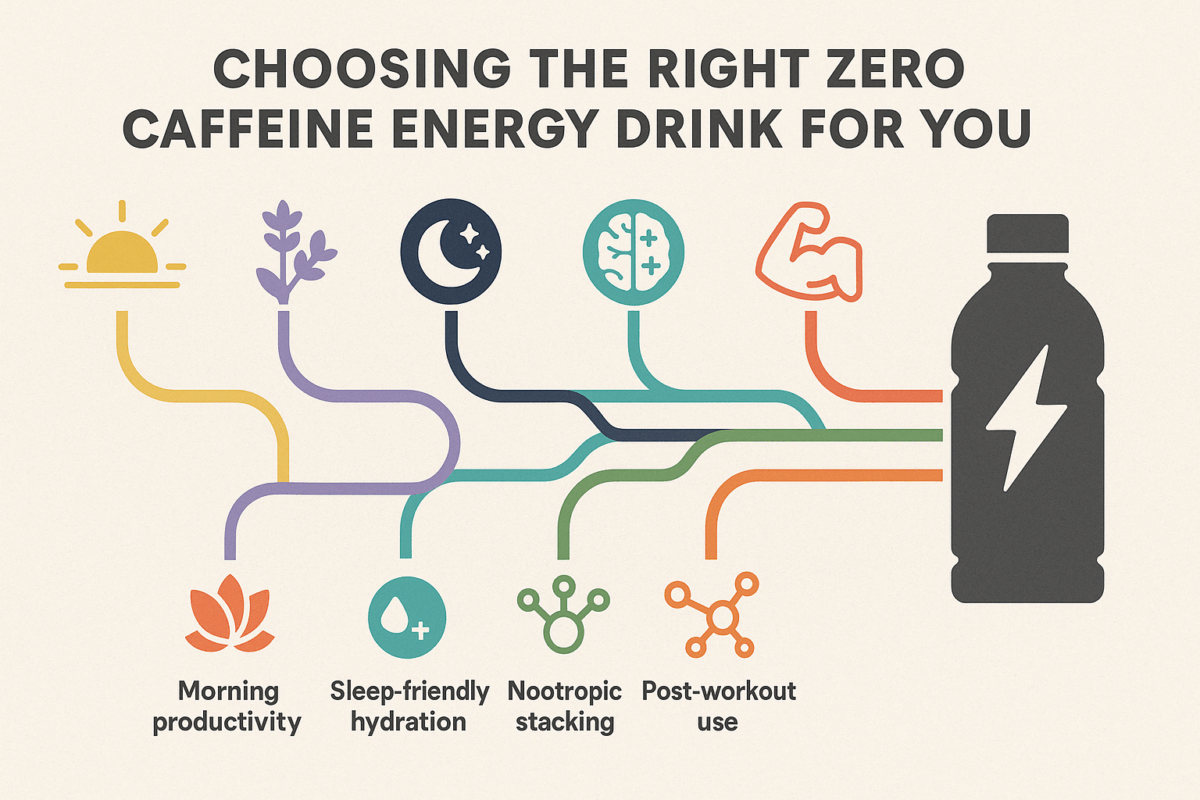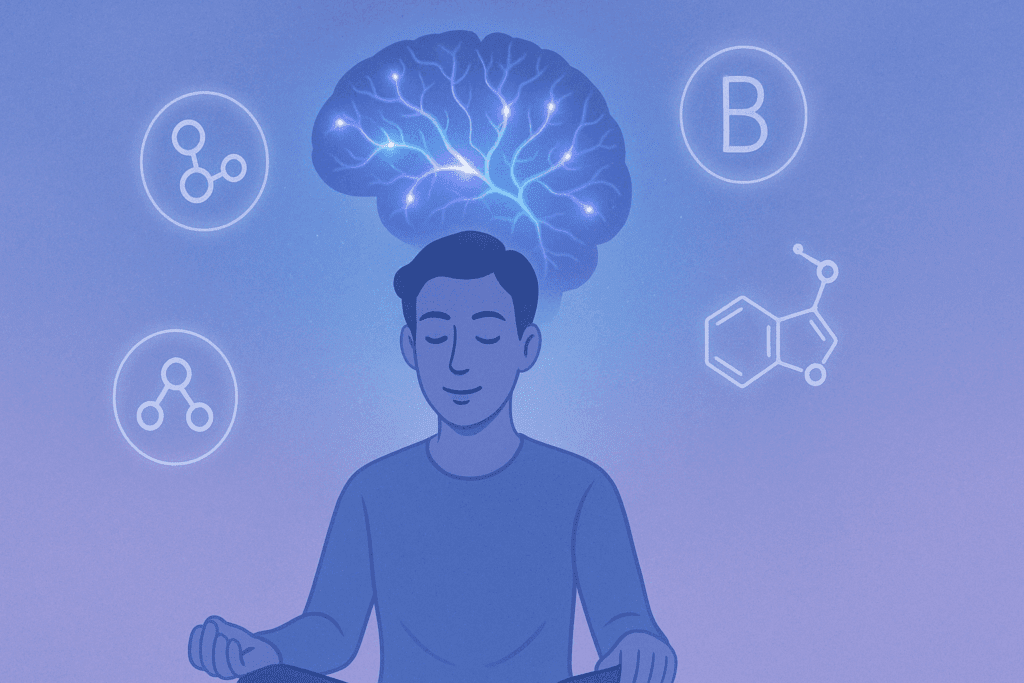Exploring Decaffeinated Energy Drinks: Can You Stay Focused Without the Buzz?
In a world fueled by caffeine, many are now searching for ways to boost energy and focus without the jittery side effects that often come with coffee or traditional energy drinks. Whether it’s the afternoon crash, sleep disturbances, or anxiety flare-ups, the downsides of caffeine have pushed consumers to reconsider their daily rituals. For those who need sustained wakefulness but want to avoid caffeine altogether, decaffeinated energy drinks are gaining serious traction. These zero caffeine energy drink options are carving out a niche in a market once dominated by high-octane formulas.
You may also like: Best Herbal Stimulants for Energy and Focus: Natural Uppers That Work Without Caffeine
It might seem counterintuitive—after all, isn’t caffeine the cornerstone of energy beverages? Not necessarily. Thanks to advancements in nutritional science and an increased understanding of nootropics and adaptogens, manufacturers are developing energy drinks that support alertness, focus, and mental clarity without relying on stimulants. A new generation of beverages—including products like Monster Energy without caffeine—is proving that it’s possible to feel sharp and energized without the crash.
This shift is especially appealing to health-conscious consumers, night-shift workers, students, and anyone sensitive to caffeine’s effects. But not all decaffeinated energy drinks are created equal. Some rely on B vitamins and amino acids, while others tap into herbal nootropics to deliver steady, stimulant-free energy. Let’s dive into what makes a decaf energy drink work, and why options like Monster drink without caffeine are becoming key players in the world of cognitive performance.

Understanding the Science Behind Energy Without Caffeine
When people think of energy drinks, they often associate them with high caffeine content and immediate stimulation. But energy, from a physiological standpoint, isn’t just about stimulation—it’s about supporting the body’s natural metabolic processes, cellular energy production, and neurotransmitter balance. This is where decaffeinated energy drinks come into play.
Instead of relying on caffeine to block adenosine and artificially ramp up alertness, zero caffeine energy drinks often work by providing the building blocks the brain needs to function optimally. For example, ingredients like L-theanine, acetyl-L-carnitine, tyrosine, and B vitamins support neurotransmitter synthesis and help regulate mood, focus, and wakefulness without causing overstimulation.
Another essential component in many caffeine-free formulas is adaptogens. These plant-based compounds—like ashwagandha, rhodiola rosea, and ginseng—help the body manage stress, reduce mental fatigue, and improve cognitive resilience. While they don’t provide an immediate “buzz,” their effects are more balanced and long-lasting, promoting mental clarity throughout the day.
The key takeaway here is that decaffeinated energy drinks aren’t trying to replicate the jittery high of traditional beverages. Instead, they’re offering a smoother ride—one rooted in science, sustainability, and long-term brain health. And for many, that trade-off is well worth it.
Monster Energy Without Caffeine: What Are the Options?
For those familiar with the world of energy drinks, Monster is a household name. Known for its aggressive branding and bold flavors, Monster built its reputation on delivering intense stimulation. But now, even this caffeine-centric brand is recognizing the demand for stimulant-free alternatives. Enter Monster Energy without caffeine.
While the majority of Monster’s lineup contains caffeine, the company has begun to explore options that align with the decaf energy drink movement. One such offering is Monster Unleaded, which was originally designed to taste like a standard Monster drink but without the buzz. Though not widely distributed anymore, its legacy points to a growing trend: even traditional giants see value in developing zero caffeine energy drink variants.
Beyond its own line, Monster has also partnered with brands like Reign and NOS that may include lighter formulations or versions with no caffeine. Though they may not all be labeled “Monster drink without caffeine” explicitly, they’re a testament to how even caffeine-heavy companies are shifting toward inclusivity and innovation.
For consumers seeking that familiar flavor without the kick, Monster’s exploration of decaffeinated energy drinks is an encouraging sign. It suggests that the category is no longer niche—it’s becoming a staple of modern wellness and focus support.

Why Zero Caffeine Energy Drinks Are Gaining Popularity
Several factors are contributing to the rise of zero caffeine energy drink products. First and foremost is consumer awareness. As people become more attuned to how caffeine affects their sleep, anxiety, and hormonal health, there’s a growing demand for alternatives that don’t interfere with these systems. Energy without stimulation is no longer a contradiction—it’s a requirement.
Another driver is the broader wellness movement. From biohacking communities to holistic health advocates, more people are embracing lifestyle habits that optimize mental performance without relying on short-term crutches. This includes better sleep hygiene, hydration, nutrient-rich diets, and yes—decaffeinated energy drinks.
Athletes and professionals are also finding that stimulant-free options allow for better control over their energy levels. Rather than experiencing a sharp spike followed by a crash, they prefer sustained alertness that doesn’t tax the nervous system. This makes zero caffeine energy drinks ideal for long shifts, creative work, or even late-night study sessions where caffeine might otherwise disrupt sleep.
Lastly, the market is responding with innovation. We’re seeing more thoughtfully formulated beverages that prioritize ingredients like nootropics, amino acids, and adaptogens—substances designed to nourish the brain rather than overstimulate it. And with major players like Monster entering the arena, decaffeinated energy drinks are no longer fringe—they’re mainstream.
Ingredients That Power Decaffeinated Energy Drinks
What makes a decaf energy drink actually work? The answer lies in the ingredients. Without caffeine as the main active compound, manufacturers must turn to a range of other nutrients to deliver noticeable benefits in focus, energy, and wakefulness.
B vitamins, particularly B6 and B12, are frequently included because of their role in energy metabolism and neurotransmitter production. These vitamins don’t give an immediate jolt, but they’re essential for converting food into usable energy and supporting nervous system function. A deficiency in B12, for instance, can lead to fatigue, brain fog, and reduced mental performance—symptoms that a well-formulated decaffeinated energy drink can help prevent.
Amino acids like L-tyrosine and taurine are also popular additions. Tyrosine serves as a precursor to dopamine and norepinephrine, neurotransmitters involved in motivation and focus. Taurine supports cardiovascular and cognitive health, often providing a calming counterbalance to the other active ingredients.
Then there are adaptogens—rhodiola, ashwagandha, and ginseng, to name a few. These herbs help the body maintain equilibrium in response to stress. In a zero caffeine energy drink, adaptogens offer subtle but powerful support for mental clarity and resilience under pressure.
Many of these drinks also include electrolytes for hydration, natural sweeteners, and flavors derived from fruit extracts or botanical infusions. The goal is to create a product that not only delivers on function but also on taste and experience—making it easier to replace your usual caffeinated option without sacrificing enjoyment.

When Should You Choose a Decaf Energy Drink?
The decision to opt for a caffeine-free beverage isn’t just about avoiding jitters—it’s about aligning your energy intake with your lifestyle, health goals, and daily rhythm. Decaffeinated energy drinks can be especially beneficial in the late afternoon or evening when caffeine might disrupt your sleep cycle. For shift workers, nighttime drivers, or students pulling long hours, staying focused without caffeine becomes a strategic advantage.
These drinks also serve as a great option during caffeine tolerance breaks. Many people who regularly consume coffee or pre-workouts build up a tolerance over time, meaning their usual dose becomes less effective. Taking a break can reset your sensitivity, and zero caffeine energy drinks help bridge the gap during this time, keeping your mental edge without extending your dependence.
Another overlooked scenario is for individuals dealing with health conditions that require reduced stimulant intake—like those managing hypertension, anxiety disorders, or adrenal fatigue. A monster drink without caffeine allows them to enjoy the energy drink experience without the potential side effects that could exacerbate these conditions.
Finally, decaf options are ideal for people who want to cycle between different types of nootropic stacks without overlapping stimulants. Whether you’re experimenting with racetams, adaptogens, or choline sources, minimizing caffeine can help you better isolate the effects of other compounds and personalize your cognitive enhancement strategy.
How Decaffeinated Energy Drinks Compare to Traditional Ones
At first glance, it might seem that energy drinks without caffeine wouldn’t stand a chance against their high-octane counterparts. But the comparison isn’t so one-sided. While traditional energy drinks deliver an immediate spike in alertness, they often come with drawbacks: rapid heart rate, anxiety, dehydration, and energy crashes. These side effects can hinder long-term productivity and even pose health risks with excessive consumption.
In contrast, decaffeinated energy drinks offer a gentler, more sustainable path to focus and wakefulness. They emphasize nutrient replenishment and brain support over brute-force stimulation. While the effects may be subtler, they are often more conducive to tasks that require calm concentration, creative thinking, or emotional regulation.
Furthermore, decaf options typically contain fewer artificial ingredients. Since these beverages aren’t relying on caffeine to deliver their punch, they often include cleaner formulas with whole-food-derived nutrients, natural flavors, and minimal sugars. This makes them a more attractive choice for those who value transparency and quality in what they consume.
That’s not to say caffeine-based drinks have no place—many people thrive on them. But the growing popularity of Monster energy without caffeine and similar products reflects a deeper understanding: energy is more than stimulation. It’s about endurance, clarity, and aligning your body’s needs with your goals.

Choosing the Right Zero Caffeine Energy Drink for You
With so many new entries into the market, selecting the right zero caffeine energy drink can feel overwhelming. The first step is understanding your specific goals. Are you looking for something to replace your morning coffee, boost productivity in the afternoon, or stay alert during late-night study sessions? Each of these scenarios may call for slightly different ingredients and effects.
Check the label for essential nutrients like B vitamins, magnesium, or amino acids that support your nervous system. Look for adaptogens if you want something that helps with stress resilience and mental clarity. And be wary of sugar content—some decaffeinated drinks use high amounts of sweeteners to compensate for the lack of caffeine’s flavor masking effects.
Taste is also important. While function is key, you’re far more likely to stick with a beverage that you actually enjoy drinking. Fortunately, the latest generation of monster drink without caffeine products and similar offerings from other brands are catching up in flavor innovation, with options ranging from tropical fruit blends to herb-infused tonics.
Lastly, consider how the drink fits into your daily rhythm. Can you pair it with a nootropic stack or meal? Is it suitable for multiple servings a day? Understanding the context in which you’ll use the drink can help you select a product that complements your lifestyle, not complicates it.
Standalone FAQ: Decaffeinated Energy Drinks for Focus and Wakefulness
1. Can a zero caffeine energy drink still help with mental focus and productivity?
Yes, many zero caffeine energy drinks are designed with cognitive-enhancing ingredients like L-theanine, ginseng, Rhodiola rosea, and B-vitamins that support mental clarity and reduce brain fog. While caffeine is a well-known stimulant, it’s not the only path to sharper focus. Adaptogens like Rhodiola help modulate stress hormones, which can enhance mental performance during high-pressure tasks. Some decaffeinated energy drinks even include nootropics like alpha-GPC or acetyl-L-carnitine to promote neurotransmitter activity. When combined with hydration and nutrients, a zero caffeine energy drink can still offer a reliable edge in mental alertness without the typical crash.
2. What makes a Monster energy without caffeine different from traditional Monster drinks?
A Monster energy without caffeine—such as Monster Unleaded (discontinued) or newer caffeine-free varieties—is formulated to mimic the flavor and experience of regular Monster without overstimulating the central nervous system. These versions often include taurine, B-vitamins, and herbal extracts for mild energy support. They’re designed for consumers sensitive to stimulants or those looking to enjoy the brand’s signature taste later in the day without risking sleep disruption. While traditional Monster drinks rely heavily on caffeine for their energizing effect, the caffeine-free options focus on metabolic and hydration-based support instead. This makes them useful for sustained hydration and micronutrient replenishment during long workdays or late-night study sessions.
3. Are there psychological benefits to choosing decaffeinated energy drinks over caffeinated ones?
Yes, switching to decaffeinated energy drinks can offer psychological advantages, particularly for individuals with caffeine sensitivity, anxiety, or sleep challenges. Removing caffeine helps break cycles of overdependence and can stabilize mood throughout the day. For people with underlying anxiety disorders, avoiding stimulants like caffeine may significantly reduce jitteriness, restlessness, or panic-like symptoms. Additionally, using a decaf energy drink as a placebo-like ritual—drinking something energizing without the stimulant—can condition the brain to associate certain flavors or routines with alertness, reinforcing focus through behavioral cues. Over time, this can improve self-regulation and help individuals adopt healthier patterns around energy management.
4. How does a decaf energy drink support workout performance if it lacks stimulants?
Even without caffeine, a decaf energy drink can be highly beneficial before or during workouts. Many contain electrolytes like sodium, potassium, and magnesium to support hydration and prevent muscle cramps. Ingredients like taurine and carnitine assist with muscular endurance and recovery by enhancing mitochondrial function. Some also include beetroot extract or nitric oxide precursors to improve blood flow and oxygen delivery to muscles. While you won’t get the same adrenal-driven “kick” as with caffeine, these drinks can promote steady, sustainable performance and are often preferred for evening workouts to avoid sleep interference.

5. Are there long-term health benefits to reducing caffeine through decaffeinated energy drinks?
Gradually reducing caffeine intake—by substituting with decaffeinated energy drinks—can support long-term cardiovascular, hormonal, and sleep health. Excess caffeine has been linked to increased cortisol production, which can disrupt metabolism, impair recovery, and promote stress-related weight gain. By switching to a zero caffeine energy drink, individuals may notice better sleep quality, reduced heart palpitations, and improved digestive regularity over time. For women, minimizing caffeine can also support hormonal balance and reduce PMS symptoms. Long-term, a more moderated caffeine lifestyle fosters better resilience, mental clarity, and metabolic balance—especially in individuals with a family history of hypertension or anxiety disorders.
6. How does a Monster drink without caffeine fit into a healthy lifestyle or wellness routine?
Integrating a Monster drink without caffeine into your wellness plan can help preserve energy levels without overstimulating the nervous system. These beverages often double as hydration boosters with added vitamins and amino acids, making them ideal as midday refreshers. They can serve as healthier alternatives to sugary sodas or late-afternoon coffees, especially for people aiming to reduce caffeine dependency. Some individuals use caffeine-free Monster as a replacement during “caffeine deload” phases—intentional periods to reset tolerance. When combined with proper sleep, balanced meals, and regular physical activity, these drinks can support wellness without undermining recovery or sleep quality.
7. Why are decaffeinated energy drinks becoming more popular in professional settings?
In high-performance professional environments, decaffeinated energy drinks are gaining traction as part of a broader shift toward mindful productivity. More employees are prioritizing sustained performance and sleep hygiene over short bursts of jittery alertness. With caffeine-free options, professionals can stay alert without the anxiety spikes or afternoon crashes linked to traditional energy drinks. Zero caffeine energy drinks also allow for flexible consumption—whether during meetings, late-night projects, or client presentations—without risking overstimulation. Their rising popularity reflects a cultural pivot toward smarter, science-backed energy strategies that prioritize long-term cognitive health over temporary boosts.
8. What are the risks of relying too heavily on caffeine, and how can decaffeinated alternatives help?
Excessive caffeine intake can lead to adrenal fatigue, heightened anxiety, digestive issues, and sleep disturbances. It may also dull your body’s natural energy cues, causing dependency over time. Decaffeinated energy drinks offer a gentler alternative that supports alertness through nutrients and adaptogens rather than stimulation. By cycling in these caffeine-free options, your body can recalibrate its sensitivity, which improves the effectiveness of caffeine when you do consume it. This cycling approach also protects your circadian rhythm and mental well-being, helping you maintain focus without compromising health.
9. How do manufacturers create decaffeinated energy drinks that still feel energizing?
To maintain the energizing “feel” without caffeine, manufacturers turn to ingredients that enhance alertness in subtler ways. This includes amino acids like taurine for cellular energy production and adaptogens like ashwagandha for stress regulation. Natural sweeteners, carbonation, and citrus flavors are also strategically used to trigger sensory stimulation, creating a perceived energy lift. Some decaf energy drinks include brain-boosting compounds like L-tyrosine or CDP-choline, which enhance dopamine pathways tied to motivation and focus. Through smart formulation, these beverages replicate the experience of energy without the physiological drawbacks of stimulants.
10. What should you look for in a high-quality zero caffeine energy drink?
When evaluating a zero caffeine energy drink, prioritize clean labeling, evidence-backed ingredients, and formulations that support hydration, cognitive function, or metabolic health. Look for options with minimal added sugars or artificial dyes and seek out drinks that include electrolytes, B-complex vitamins, or functional nootropics. A high-quality decaffeinated option will offer transparency about its ingredient sourcing and often includes third-party testing for purity. Brands that offer a Monster energy without caffeine or similar alternatives usually target performance without overstimulation, making them suitable for students, athletes, or professionals aiming for steady focus. Finally, choose drinks that align with your personal health needs—whether that means sugar-free, vegan, or allergen-free formulations.

Final Thoughts: Why Decaffeinated Energy Drinks Deserve a Place in Your Routine
As we continue to explore more nuanced ways to support cognitive performance and sustainable energy, decaffeinated energy drinks are proving their worth. No longer just an alternative for caffeine-sensitive individuals, these drinks are emerging as essential tools for anyone who values balanced focus, emotional regulation, and long-term brain health.
The market’s response—highlighted by innovations like Monster energy without caffeine—signals a cultural shift. We’re moving beyond the quick fix and embracing strategies that align with both physical wellness and mental performance. Whether you’re a student navigating intense study demands, a professional juggling long hours, or simply someone seeking better balance in your day, a zero caffeine energy drink could be exactly what your system needs.
Incorporating a monster drink without caffeine or other stimulant-free alternatives into your routine doesn’t mean sacrificing productivity. On the contrary, it might just help you unlock a steadier, more intentional kind of energy—the kind that keeps you sharp without burning you out. And as more people discover the benefits of decaffeinated energy drinks, it’s clear this movement is here to stay.
natural energy boosters, stimulant-free focus aids, caffeine-free performance enhancers, herbal brain supplements, plant-based energy sources, focus-enhancing herbs, mental stamina support, non-caffeine alertness solutions, brain health drinks, adaptogenic energy supplements, clean energy beverages, holistic focus remedies, neuroprotective herbs, energy without jitters, sustained mental clarity, herbal nootropic options, natural wakefulness support, mood and energy balance, safe energy alternatives, functional focus drinks
Was this article helpful? Don’t let it stop with you. Share it right now with someone who needs to see it—whether it’s a friend, a colleague, or your whole network. And if staying ahead on this topic matters to you, subscribe to this publication for the most up-to-date information. You’ll get the latest insights delivered straight to you—no searching, no missing out.
Further Reading:
Are there any energy drinks that are not based on caffeine?


